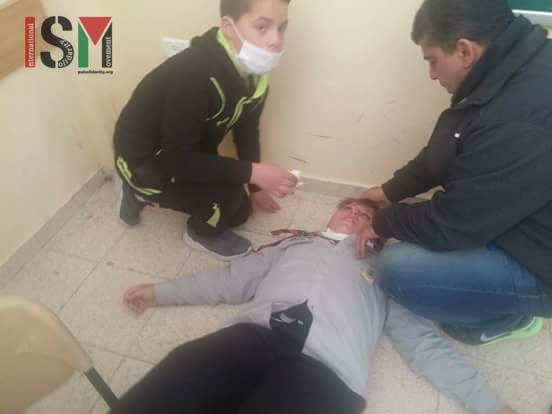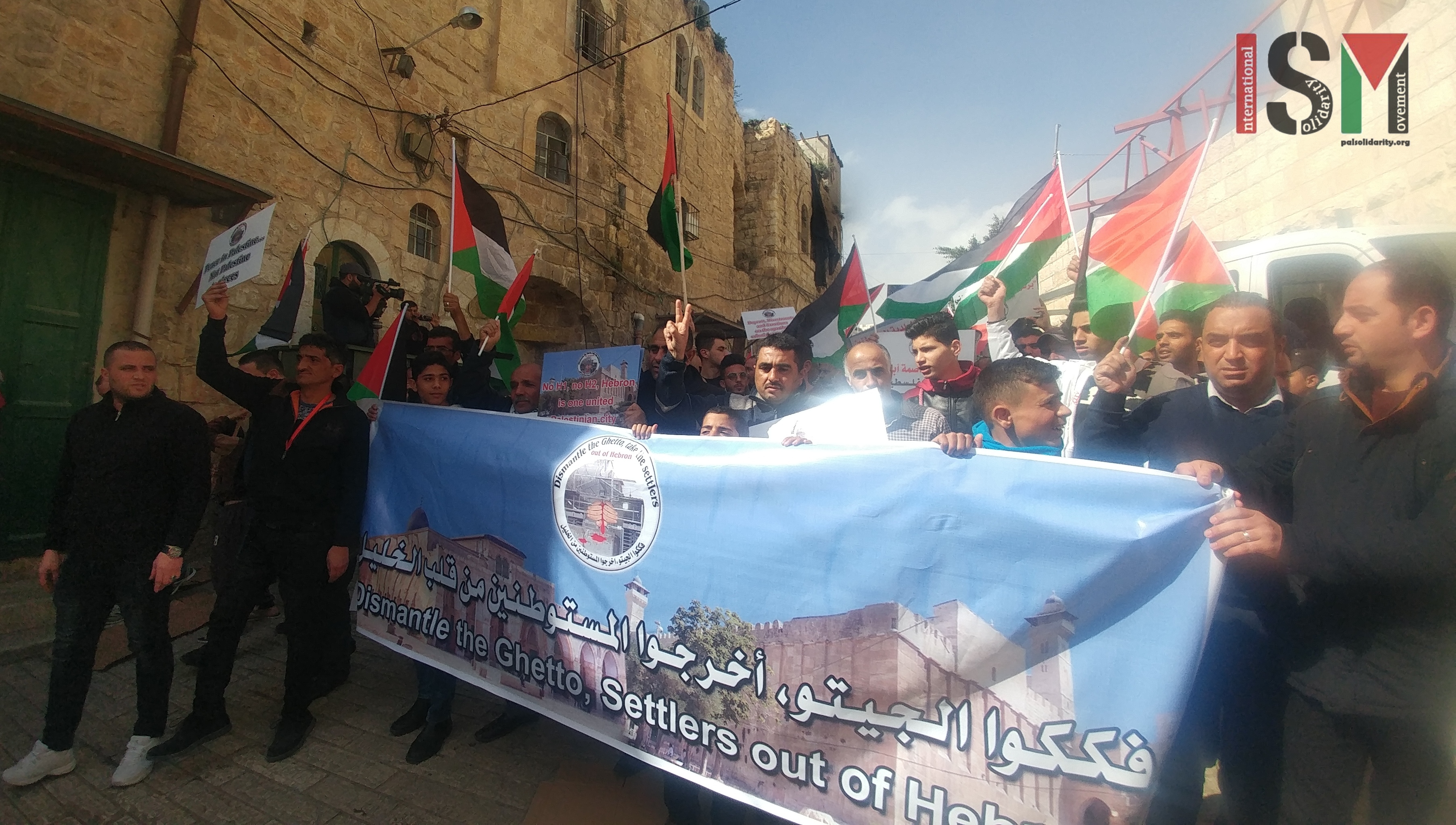Tag: Hebron
-
Israeli forces provoke and fire tear gas and stun grenades at school children
28th February 2018 | International Solidarity Movement, al Khalil team | Occupied Palestine This morning, armed Israeli Border Police entered Salaymeh neighborhood in Al Khalil, Hebron. They advanced towards the schools and shot one tear gas canister and one stun grenade at school children at 7:45 am. This happened after a single border police provoked…
-
Palestinian arrested for selling bracelets near Ibrahimi Mosque checkpoint
21st February 2018 | International Solidarity Movement, al Khalil team | Occupied Palestine Yesterday a Palestinian shop owner, age 24, was arrested for selling bracelets to passersby outside Ibrahimi Mosque checkpoint. The mosque checkpoint was bustling with young men selling bracelets and key chains to tourists as border police singled out one to detain and…
-
Israeli forces suppress Palestinian demonstration against apartheid restrictions in Al Khalil, Hebron
International Solidarity Movement Al Khalil/Hebron Team 16/02/2018 Today a demonstration was organized by Human Rights Defenders and Hebron Defense Committee under the umbrella name Dismantle the Ghetto. Around 300 Palestinians prayed inside and outside the mosque and shortly after prayers they marched from the mosque to Bab Al Baladia which was once a Palestinian gold…



